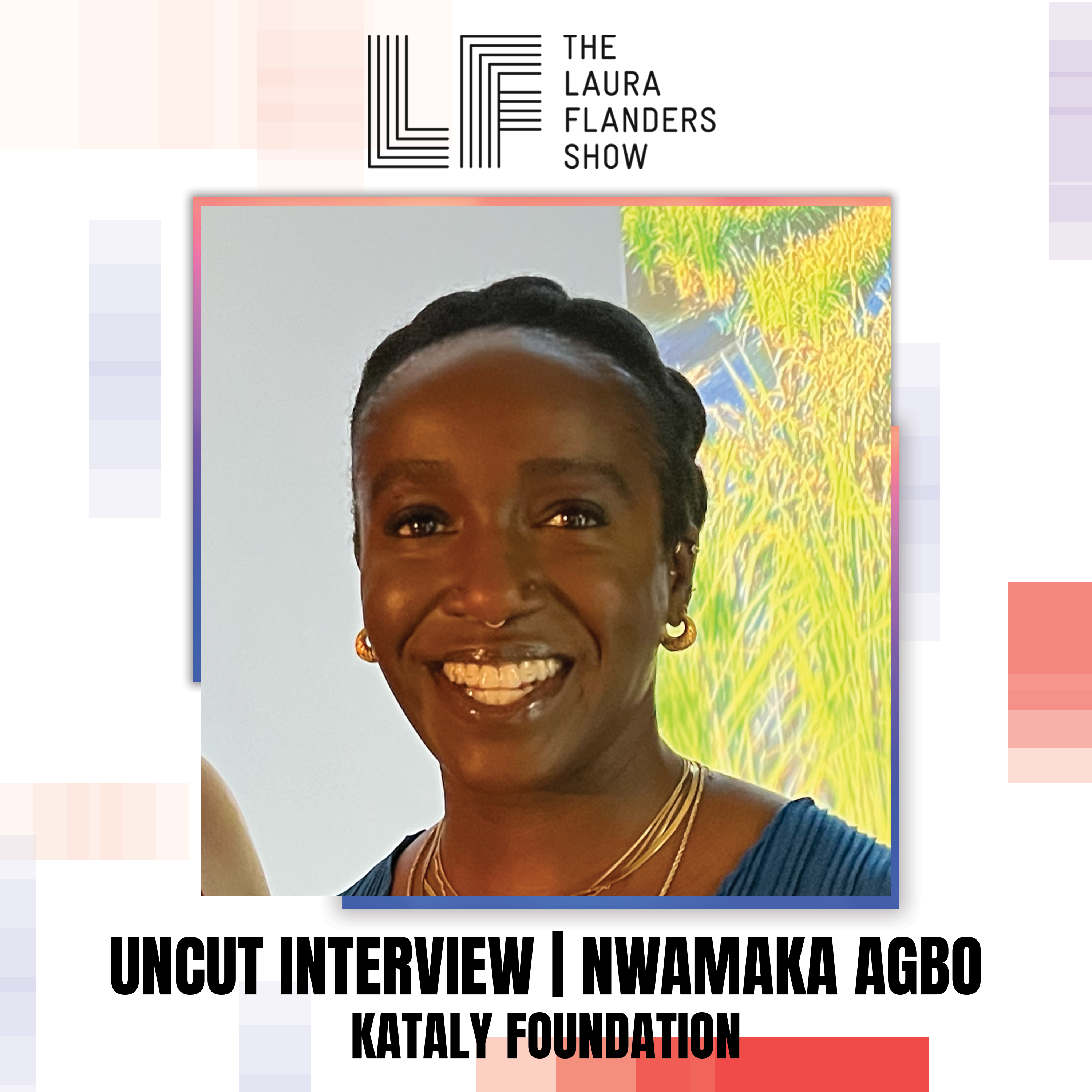Pledge as little as $3/month for early access to the full, uncut conversation.
For more audio extras, subscribe to The Laura Flanders Show on your favorite podcast platform.
A bold experiment is taking place among Black farmers in the Southeast — a story of hope in an area with a history of plantation slavery, land theft and white violence. The Jubilee Justice Black Farmers’ Rice Project is pioneering regenerative farming practices as a means to address systemic racism and make repair. This innovative project combines restorative economics, regenerative agriculture, and asset ownership as the path to address the harm done to Black farmers, and the environmentally harmful methods of rice production. In this exclusive report from The Laura Flanders Show, Laura Flanders reports on-location from Alexandria, Louisiana, where she meets Jubilee Justice Co-Founder and President Konda Mason, veteran civil rights crusader Shirley Sherrod and the Black farmers at the center of this story. Through knowledge sharing, collaboration and community support, this project endeavors to bridge the racial divide and foster a future rooted in justice and healing. Join us to discover how Jubilee Justice helps repair the damage from long-term racism and plant the seeds for a healthful and healing future.
“Restorative economics calls on us to first acknowledge the hurt and structural harm caused by economic systems of extraction and exploitation. It then requires us to engage in a conversation about repair.” – Nwamaka Agbo
“How can we balance all of the farming principles that we want to hold on to? How can we build soil health? How can we have a productive mill? . . . That’s the mission.” – Myles Gaines
“My goal is to not just grow organically and to be regenerative . . . but to do it in a way that’s affordable so that everybody has access. Everybody has a right to good, nutritious food.” – Donna Isaac
“. . . If you take care of the soil and if you farm regeneratively, you are going to not only get a better crop . . . but it’s going to be more nutritious for the consumer and better for the environment. Regenerative is the future and we’re totally committed to it.” – Caryl Levine
“Farmers are aging and their kids don’t want to take over. So that land’s going to go somewhere. Is it going to go to developers or is it going to go to people who care passionately about changing how the food that we eat is grown, for the betterment of society?” – Ken Lee
“As Black farmers, we rarely own the land . . . And we are completely dependent upon a third party to say yes to my crop . . . What that mill represents is a vertical integration of their crop from growing it to milling it, to distributing it, and making their own decisions . . . We have to own the means of production.” – Konda Mason
“. . . It’s not just the big guys who can come in and grow rice where it’s not even healthy and feed it to all of us . . . We can pick our area, we can do it right, we can show care and love for each other, and that comes out in the food we provide.” – Shirley Sherrod
“We as a cohort have the deeds to this . It’s going to be ours. If all else fails, we still have a building for people to come to, that they need . . . This building here is a stronghold for me and my heart.” – Bernard Winn
Guests:
- Nwamaka Agbo: CEO, Kataly Foundation & Managing Director, Restorative Economies Fund
- Myles Gaines: Head of Innovation & Experimentation, Jubilee Justice Black Farmers’ Rice Project
- Donna Isaac: Farmer, Jubilee Justice Black Farmers’ Rice Project
- Ken Lee and Caryl Levine: Co-Founders & Co-CEOs, Lotus Foods; Partners with Jubilee Justice Black Farmers’ Rice Project
- Konda Mason: Founder & President, Jubilee Justice
- Shirley Sherrod: Executive Director, Southwest Georgia Project for Community Education; Co-Founder, New Communities, Inc.; U.S. Department of Agriculture’s (USDA) Equity Commission
- Bernard Winn: Operations Specialist & Mill Manager, Jubilee Justice Black Farmers’ Rice Project
Portions of this interview are featured in our episode, “Jubilee Justice Regenerative Farming: Tackling Racism with Rice.”

















